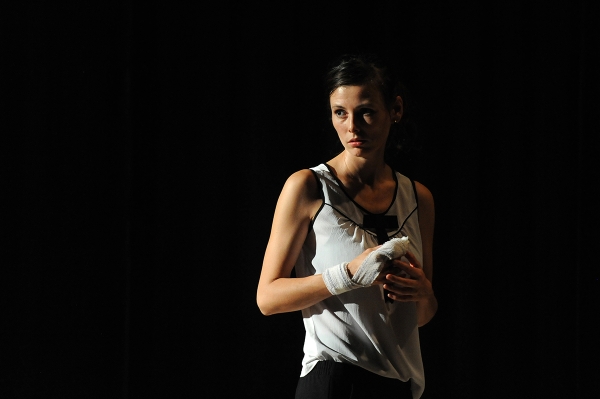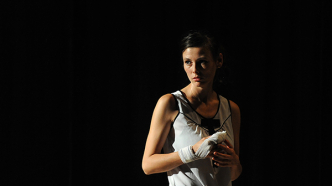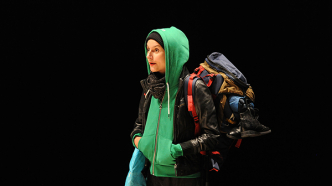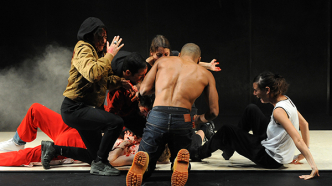Baptiste Amann Des territoires (...D’une prison l’autre...)
[Theatre]Des territoires (...d’une prison l’autre...), the second installment in a long-term trilogy, plunges us deep into the lives of four siblings in mourning. Lyn, Benjamin, Samuel and Hafiz have just buried their parents. All around them is the low rumble of revolt. Baptiste Amann confronts his characters with this confinement, anger and dissent.
Baptiste Amann has chosen a suburban bungalow to be the show’s huis-clos. As the only item of décor in his preceding piece Des territoires (Nous sifflerons la Marseillaise), this house once again becomes a space where confinement takes place, the riots outside preventing the orphaned siblings from going outside. The living room becomes a makeshift cell, as well as a place for meetings and discussion. In the eyes of Baptiste Amann, this coming together of intimate and social anger prompts the following question: what revolution will our XXI century bear witness to? The director calls upon history in order to throw light on our own era. In the trilogy’s first installment, the French Revolution loomed beneath the décor of an ordinary-looking suburb in the figure of the politically moderate Condorcet. In Des territoires (...d’une prison l’autre...), it is the Commune which bursts onto the stage, straight into the heart of the family bungalow. Baptiste Amann summons up the dead, from Théophile Ferré to Gustave Courbet, and from Louise Michel to Marie Ferré. The figures of these Communards are then explored in terms of their echoes with contemporary figures. They share in their sense of defeat, and anguish in the face of an uncertain future. In the hands of Baptiste Amann, the point of playing out history is not to reassure us. History makes of the revolutionary act a territory to be sifted through, a common state of mind, and a fragile, easily broken commitment which is not without pain and suffering.





